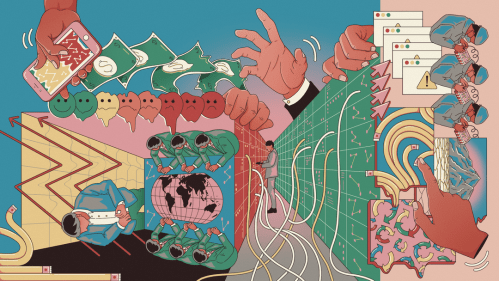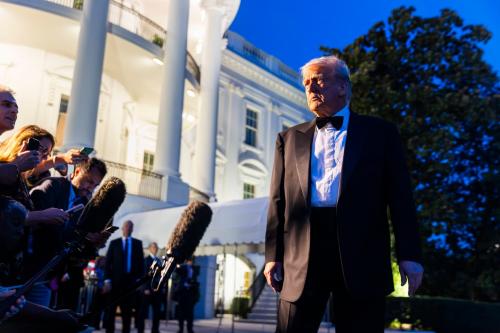2010 was a dramatic year for Koreans and for the global media covering Korea. In March a North Korean torpedo sank the South Korean naval ship Cheonan and on Nov. 23 the North Korean army shelled the South Korean island of Yeonpyeong.
As it turns out, whenever hostilities flare up in Korea, I receive many phone calls from the media asking me to comment. This year eager media representatives even called on Thanksgiving, two days after the island shelling. My response: “Please let me enjoy my Thanksgiving dinner in peace. Until North Korea is gone, you will have no shortage of this kind of news.”
From a business standpoint, bad news from Korea is good news for me, because for the past 25 years I’ve been studying and writing about North Korea. North Korea is also good news for the media, who are always looking for something sensational to report about. In saying this, I don’t mean to be callous or sarcastic. A nation has been attacked and people have been killed.
Unfortunately, extensive international news coverage of every North Korean threat and provocation only serves to reinforce this kind of bad behavior. The Kim regime loves to see its name in the papers. It needs to cause consternation in the international community to avoid being forgotten and left to its own miserable fate. News of most North Korean military confrontations is also brought to the attention of the North Korean people by their domestic media, who put a very different spin on the stories. Periodically reminding the people that they are on the brink of a shooting war heightens their nationalistic fervor and helps keep them dependent on their government for protection against “invasion.”
But what is news? Most people think that an item worthy of being headline news is something that is new and important. Commentators such as myself are asked to explain it and predict the future course of events. But to be more accurate, news, as many people have observed, is whatever the media chooses to talk about. I’m sorry to say, but there is little new or important that comes out of North Korea. The attacks in the West Sea deserved to be covered, but they are simply the latest in a long line of North Korean provocations, some more serious, for example the 1968 attack on the Blue House or the 1987 bombing of a Korean Air Lines plane, and some less serious, such as the ill-fated North Korean submarine incursions of 1996 and 1998. But underlying all these news items is the same old story: the political division of the two Koreas and the desire of the North Korean regime either to rule over the entire peninsula or at least to obtain support for their continued rule over the northern half of the country.
As long as this political dynamic persists, there will inevitably be flare-ups, and it is particularly worrisome when news stories influence national policy. With the media screaming about the North Korean artillery attack, President Lee was virtually forced to issue dramatic threats toward North Korea and take drastic steps to strengthen the South Korean military. Unfortunately, as long as a dynastic North Korea continues to exist, especially as long as it is guided by “military-first politics” and ruled by so-called “great generals,” South Korea will be vulnerable to surprise attacks. People must accept this. It is not news.
What the South Korean government needs to do is adhere to a long-term policy that addresses, as best it can, the incompatible nature of the two Koreas. For many years that policy was Cold War containment under the ultimate protection of American forces. As long as North Korea remained a frontline state of the communist bloc, this was the best that could be done. After global communism retreated, a policy of engagement held out hopes of weaning North Korea away from its old ways and leading it to peaceful unification. But as it turned out, the Kim regime had no intention of reforming, even if it ended up as the world’s last hard-line communist state, so the generous and well-meaning gestures of the Sunshine Policy ended up helping to keep the Pyongyang Kims in power.
Under the Lee administration, South Korean policy toward North Korea has become, in my opinion, more realistic. South Korea’s greatest strengths lie in its politics, economy and society. South Korea should take prudent steps to protect itself and punish North Korean provocations in a proportional manner, but it should put its greater efforts into using non-military power to wear down the North Korean regime until it finally collapses. South Korea’s free elections, its growing economy, and its vibrant society are the important news, and North Korean military provocations should not distract people from that.
The Brookings Institution is committed to quality, independence, and impact.
We are supported by a diverse array of funders. In line with our values and policies, each Brookings publication represents the sole views of its author(s).



Commentary
Op-edSame Old News
December 27, 2010